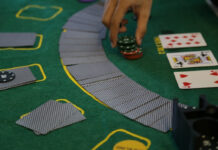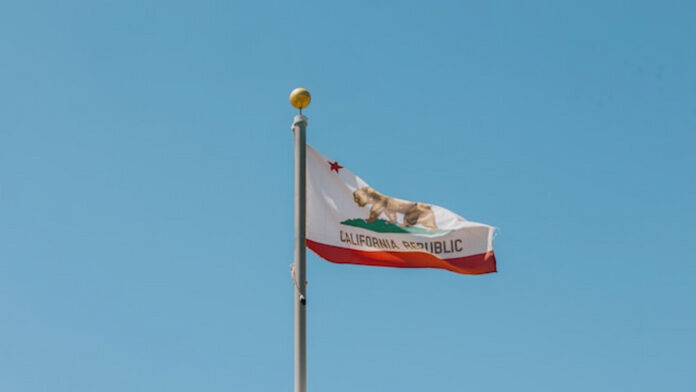California Attorney General (AG) Rob Bonta has issued his highly anticipated legal opinion on daily fantasy sports (DFS), and it confirms what many expected: DFS contests are illegal under state law.
Bonta’s office released its opinion on July 3. It categorizes DFS contests as illegal wagering under Penal Code section 337a. It falls foul of the code given participants pay money in exchange for a chance to win, based on the uncertain future performance of real-world athletes.
The AG emphasized that even though skill may be involved (an argument Underdog Fantasy raised in a lawsuit against Bonta), that does not exempt DFS from being considered illegal wagering.
Bonta Argues Draft-Style DFS is Not a Skill Game
In the 33-page opinion, Bonta says that draft-style DFS games violate state law. He argues that they function similarly to wagering on sports events rather than skill-based contests.
The AG draws a distinction between draft-style DFS and traditional season-long fantasy leagues. In both, users select a team of real-world athletes in upcoming sporting events. But, unlike season-long contests, draft-style DFS contests are decided by each athlete’s performance in a single game.
In draft-style DFS, participants select athletes using various methods, which may involve skill. Still, they do not compete in or influence sports events. Their success depends entirely on outcomes beyond their control, much like sports betting.
The AG emphasizes that the decisive factor remains the athletes’ on-field performance, which resembles wagering on horse racing or sports betting.
Furthermore, Bonta points out that operators collect fees and set prize structures that do not depend on the number of entrants. That makes the contests more similar to traditional gambling products than to recreational competitions.
Bonta concludes that under Penal Code section 337a, which prohibits betting on sports contest outcomes, draft-style DFS falls under the definition of illegal gambling in California.
All Pick’ Em DFS Deemed Illegal
Bonta also addresses Pick ‘Em-style DFS contests, which have surged in popularity but have attracted intense scrutiny.
In these contests, users select two to six athletes and predict whether each will exceed or fall short of a specific performance benchmark. An example is whether Steph Curry will score five threes in a game.
Bonta concludes that Pick’ Em contests are essentially proposition (or props) bets available at traditional sportsbooks. As with draft-style DFS, the AG concludes that Pick’ Em DFS is illegal wagering in California.
“As with many traditional sportsbook bets, pick ’em players place a bilateral wager against the game operator. The player and operator each ‘promise[] to give money…upon the determination of an uncertain or unascertained event’ (the sports competitions) being resolved ‘in a particular way'”
Bonta says his opinion falls in line with other state regulators, including in Arizona, Florida, Virginia, and Wyoming. These states have declared that Pick’ Em DFS is a form of parlay or props betting.
Furthermore, the California Attorney General addresses peer-to-peer Pick’ Em formats. Many operators, including recently PrizePicks in California, have adopted these newer contests to sidestep legal challenges and regulatory scrutiny.
In peer-to-peer contests, users play against each other. The odds and payouts are determined by each user’s performance relative to the other players in the pool.
However, Bonta’s opinion makes it clear that these contests are also illegal wagering, because players risk money on the outcomes of third-party sports performances.
Season-Long Fantasy Contests Not Addressed
Notably, Bonta did not address traditional, season-long fantasy sports contests as the request that prompted his opinion specifically asked for a decision on DFS.
Still, the AG emphasized the difference between DFS and season-long fantasy numerous times. The latter is often played among friends and small groups for entertainment, involving low or no financial stakes.
While Bonta does not explicitly address season-long fantasy contests, some legal experts believe his reasoning could extend to them in the future. According to Adjunct McGeorge School of Law Professor Chris Micheli, based on his DFS opinion, Bonta “would find the same way for the seasonal [fantasy contests].”
Governor and Operators Disagree
Shortly after Bonta released the opinion, according to his office, Gov. Gavin Newsom disagreed with it:
“The Attorney General, in his independent capacity, issued this opinion — not the Governor’s office,” noted Izzy Gardon, a spokesman for Gov. Newsom.
“While the Governor does not agree with the outcome, he welcomes a constructive path forward in collaboration with all stakeholders.”
J.T. Foley, Executive Director of the Coalition for Fantasy Sports, said the coalition agrees with the governor. He emphasized that the opinion does not change the law:
“The law has not changed, a fact the last two Attorneys General, Kamala Harris and Xavier Becerra, recognized as they specifically declined any similar action. We are hopeful the Attorney General heeds the Governor’s call to find a constructive solution that preserves the games that California sports fans love.”
The Coalition for Fantasy Sports represents companies like Underdog Fantasy, PrizePicks, Betr, Dabble Fantasy, and Splash Sports.
Is DFS Now Illegal in California?
Despite the strong language in Bonta’s opinion, Attorney General opinions do not alter the law. They act as an advisory interpretation of the law, intended to guide enforcement agencies and lawmakers.
In the court rejection of Underdog Fantasy’s lawsuit attempting to block the opinion, Sacramento County Superior Court Judge Jennifer Rockwell emphasized this as well:
“Further, the Attorney General’s issuance of an opinion of pursuant to Government Code section 12519 does not effect any change in the law,” citing case law stating that “the opinions of the California Attorney General are advisory only and do not carry the weight of law.”
For DFS to become illegal, the legislature or courts would need to act. That means a court ruling or an explicit statutory change. Still, legal experts, including Micheli, note that California courts traditionally grant “a fair amount of deference” to the Attorney General’s legal opinions.
Bottom Line: Daily fantasy sports contests are not yet illegal in California. Still, the Attorney General’s opinion increases the legal risk and sets the stage for potential enforcement or legislative action.













